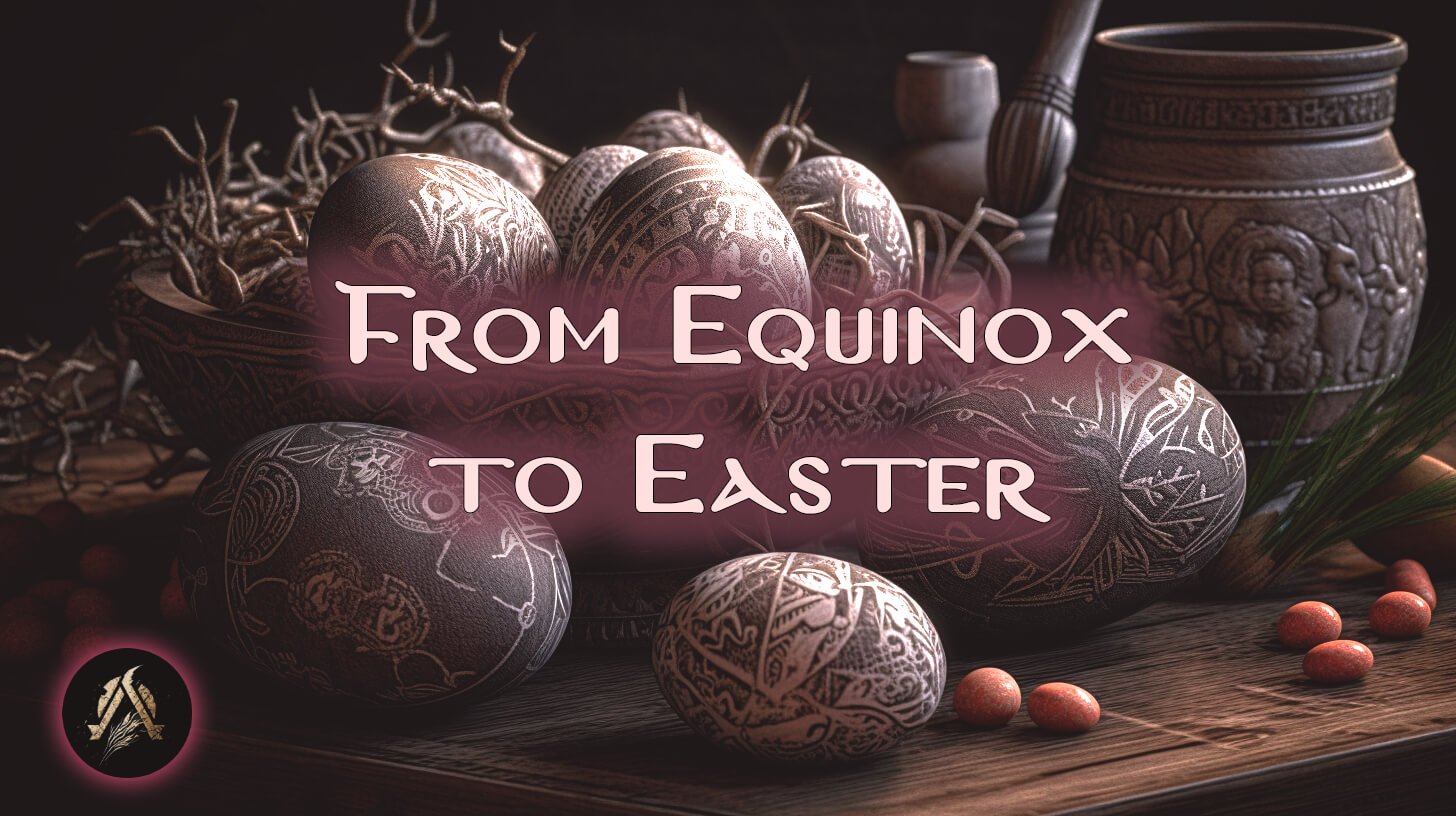Here is more if one wants to know the truth..Now the festival of 'Easter' which the Catholic church used to shift the worship from Sabbath to Sunday is much more documented but was done basically in 'plain sight' but slowly and incrementally so they could get away with it. Here is a good breakdown..
"In addition, we are informed, “Neither the apostles, therefore, nor the Gospels, have anywhere imposed... Easter... The Savior and His apostles have enjoined us
by no law to keep this feast [Easter]... And that the observance originated not by legislation [of the apostles], but as a custom the facts themselves indicate” (fourth century scholar, Socrates Scholasticus,
Ecclesiastical History, Book V, chapter 22). The Apostle Paul confirms he maintained the customary observance of Passover, as was given to him by Christ Himself, when he said, “For I received of the Lord Jesus
the same night in which he was betrayed [
not Easter Sunday!] took bread” (
1 Corinthians 11:23). Keep in mind Jesus Christ was betrayed during the night of Nisan 14 (
Luke 22:15-22), which was considered the evening portion of the day of Passover (
Exodus 12:6-13). Remember, God begins a new day at evening, commencing at sunset (
Genesis 1:5). With this
established fact and connection in mind, how then was it changed from the 14th of Nisan (Passover) to the Sunday following the first full moon after the vernal equinox, and then assigned the pagan name Easter (Ishtarte)? Unquestionably, this is no minor change from the original observance that Jesus Christ exemplified (especially since people
died refusing to obey this change). And furthermore, to supersede the authority of Jesus’ own example is obviously presumptuous at best; and at worst, it is outright heretical!
How could such a blatant act of contradiction and disregard for our Lord’s example and commands be allowed to take place? This is a question all of us should seriously ask ourselves!
Assuredly, we must first understand the contention between the Western congregations led by Rome and the Eastern Asiatic congregations. This debate intensified during the second century, and is historically known as the
Quartodeciman controversy.
“Quartodeciman” is simply a Latin term indicating fourteenth. What the ecclesiastical record of the second century reveals is that there was a controversy over the fourteenth— specifically,
it concerned the change from the fourteenth of Nisan (Passover) to Easter, with all of its pagan connections, associations, and typologies of fertility and fecundity. This was unequivocally
contested and rejected by the congregations of the Asiatic East. It came to a head when Polycarp, the bishop of Smyrna (who was personally taught by John the apostle), faced off with Anicetus, the preeminent bishop of Rome, in about 95 A.D.
Notice what history tells us from the Catholic Church itself, concerning this second century controversy: “The dioceses of all Asia, as from the
older tradition [Passover], held that the
fourteenth day of the moon, on which day the Jews were commanded to sacrifice the lamb, should
always be observed as the feast of the life-giving Pasch Passover]... However, it was not the custom of the churches in the rest of the world [primarily the West, represented by Rome] to end it at this point [allegedly a non-biblical based fast ending on Easter Sunday], as they observed the practice, which from apostolic tradition has prevailed to the present time... Synods and assemblies of bishops
[not Jesus Christ’s example or the Gospel records!] were held on this account and all with one consent through mutual correspondence drew up an ecclesiastical decree [superseding Christ’s personal example as recorded in the Gospels] that the mystery of the resurrection of the Lord should be celebrated on no other day but, the Sunday [Easter] and that we should observe the close of the paschal fast on that day only. A letter of Saint Irenaeus is among the extracts just referred to, and this shows that the diversity of practice regarding Easter had existed at least from the time of Pope Sixtus. Further, Irenaeus states that St. Polycarp [bishop of Smyrna], who like the other Asiatics, kept Easter on the fourteenth day of the moon [which is really the Passover], whatever day of the week that might be, following therein the tradition which he [Polycarp] claimed to have derived from St. John the Apostle, but could not be persuaded by Pope Anicetus to relinquish his Quartodecimen observance. The question thus debated was therefore primarily whether Easter was to be kept on a Sunday, or whether Christians should observe the holyday of the Jews... Those who kept Easter [Passover] with the Jews were called Quartodecimans”
(Catholic Encyclopedia, emphasis added).
Clearly, the historical record
from the Catholic Church proves that they themselves (not Jesus Christ) chose to exercise authority to change and sever the connection of Passover. Undoubtedly, there was a long-term agenda to shift and undermine any and all associations connecting Jewish Israeli underpinnings that were foundational to the early Christian Church. Remember, Paul said, the household of God (the Church) is “built upon the foundation of the apostles and prophets [not Synods, Councils, and bishops], Jesus Christ himself being the chief comer stone” (
Ephesians 2:20). There was absolutely no authorization to change the framework of this major point of doctrine, disconnecting from Jesus Christ’s own appearance of worship exemplified by His life, habits, and customs (
1 Peter 2:21;
1 John 2:6). It is important we remember: Jesus Christ
never kept an Easter in His life! Unequivocally, it is undeniable that Easter has
no Biblical connection, foundation, or authority on the name of Jesus Christ that requires observance and/or recognition by any who claim Christ as their Savior.
Yet, regardless of these verifiable facts; this trend finally became law in the year A.D. 325 at the Council of Nicaea. Again notice, from the
Catholic Encyclopedia: “The emperor himself [Constantine] writing to the churches after the council of Nicaea, exhorts, ‘At this meeting the question concerning the most holy day of Easter was discussed, and it was resolved by the united judgment of all present [regardless of the example/commands of Jesus Christ and the original apostolic fathers,
Matthew 26:17-30] that this feast ought to be kept by all and in every place on one and the same day [Easter Sunday]...And first of all it appeared an unworthy thing that in the celebration of this most holy feast we should follow the practice of the Jews, who have impiously defiled their hand with enormous sin... for we have received from our Savior a different way [Where, then, is the Biblical proof or Christological authorization?] ...and I myself [Constantine] have undertaken that this decision should meet with the approval of your sagacity in the hope that your wisdoms will gladly admit that practice which is observed [Easter Sunday] at once in the city of Rome and in Africa, throughout Italy and Egypt... with entire unity of judgement.”
And finally, under the article “Councils” in the
Catholic Encyclopedia again, we read about the purpose of the Council of Nicaea. ‘The first ecumenical, or council, of Nicaea (325 A.D.) lasted two months and twelve days. Three hundred and eighteen bishops were present. Hosius, bishop of Cordova, assisted as legate of Pope Sylvester. The Emperor, Constantine, was also present. To this council we owe the Creed of Nicaea, defining against Arius the true divinity of the Son of God [Arius challenged the divinity of Jesus Christ], and the fixing of the date for keeping Easter [which opposed the Quartodecimans who observed Passover]
It was now made “official”: Easter Sunday, the day after the first full moon, after the spring equinox, became the day to celebrate Jesus Christ’s resurrection. This was a serious and critical shift of theology. Critical, because it not only changed the day of the observance, but changed the focus, the meaning of the observance. It now became an observance and celebration of His resurrection, contrary to the Biblical admonition of
remembering His death!
Notice what Paul says, “For as often as ye eat this bread, and drink this cup, ye do shew
the Lord’s death [not His resurrection] till he come” (
1 Corinthians 11:26). There is a purposeful point of significance our Lord placed exclusively on Passover
concerning His death. It’s very fundamental, but crucial to understand; Passover was intended to distinctly address the impeccable fact that it was by Jesus Christ’s sacrificed life and shed blood that we have access to eternal life. Unfortunately, merging His death and resurrection into one holy day, as Easter describes, blurs the deep profound meaning of both these events by taking away the emphasis that each so richly deserves."
HOW WAS PASSOVER REPLACED BY EASTER… And Who Did It? — The Church of God International






/https%3A%2F%2Ftf-cmsv2-smithsonianmag-media.s3.amazonaws.com%2Ffiler_public%2F49%2F8f%2F498fd1ae-7e62-43b8-9cee-2b40c5279630%2Fgettyimages-1300187996.jpg)

